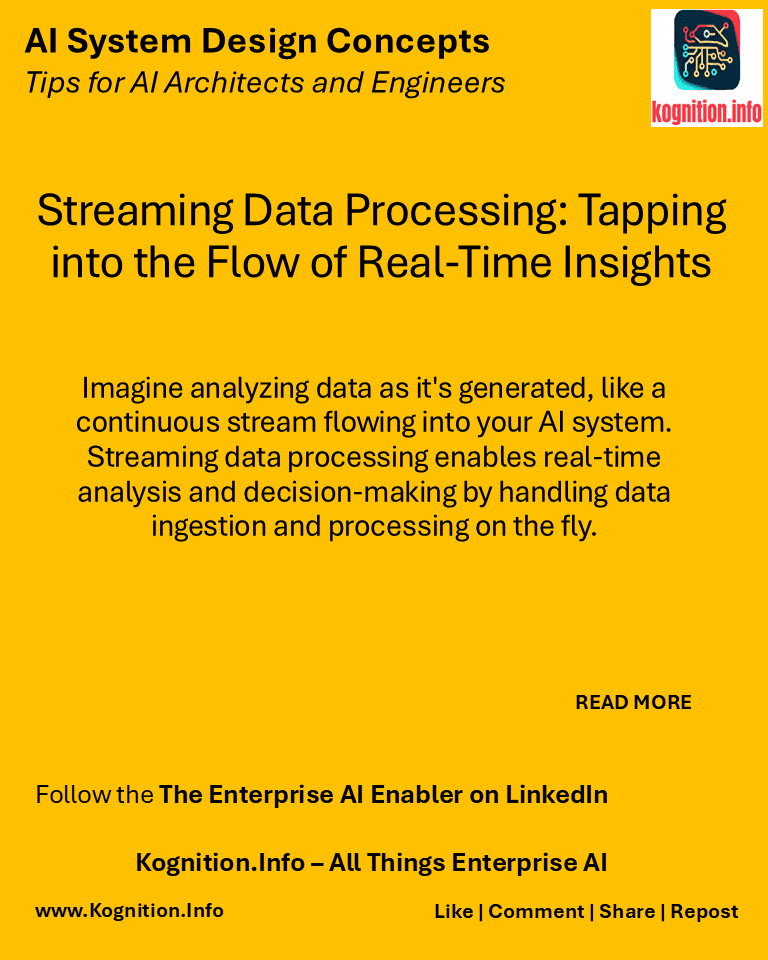
Imagine analyzing data as it’s generated, like a continuous stream flowing into your AI system. Streaming data processing enables real-time analysis and decision-making by handling data ingestion and processing on the fly.
Use cases:
- Fraud detection: Monitoring transactions in real-time to identify and prevent fraudulent activities.
- Network security: Analyzing network traffic to detect anomalies and security threats.
- Personalized recommendations: Updating user preferences and providing recommendations based on their current activity.
How?
- Choose a streaming platform: Select a platform like Apache Kafka, Apache Flink, or cloud-based solutions like AWS Kinesis.
- Design the processing pipeline: Define how data will be ingested, processed, and analyzed in real-time.
- Implement windowing and aggregation: Process data in time-based windows or based on other criteria.
- Handle late arriving data: Implement strategies to deal with data that arrives out of order.
Benefits:
- Real-time insights: Enables immediate analysis and action.
- Improved responsiveness: Allows for quick adaptation to changing conditions.
- Reduced latency: Minimizes delays in processing and decision-making.
Potential pitfalls:
- Complexity: Designing and managing streaming pipelines can be complex.
- Fault tolerance: Ensure the system can handle failures and maintain data consistency.
- Scalability: Handle increasing data volumes and velocity as the system grows.
